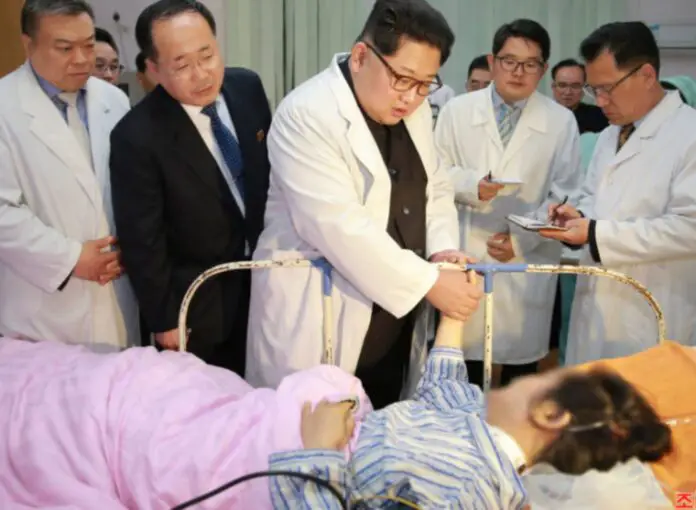North Korea is known for its secretive and authoritarian regime. Unfortunately, this extends to its healthcare system, which is severely underfunded and lacks basic medical supplies. As a result, many North Koreans have little access to healthcare, and preventable diseases are all too common. In this blog post, we’ll take a closer look at the factors that contribute to North Korea’s poor healthcare system.
Historical context
To understand the state of healthcare in North Korea today, it’s important to look at the country’s history. The Korean War, which ended in 1953, devastated the country’s infrastructure and left many people without access to healthcare. Additionally, the country’s isolationist policies have made it difficult to import medical supplies and expertise.
Here are some reasons why North Korea’s healthcare system is poor:
1. Lack of funding
North Korea spends a relatively small portion of its budget on healthcare, with some estimates putting the figure at less than 3%. This means that hospitals and clinics are often understaffed and under-resourced, with outdated equipment and limited supplies.
2. Shortage of medical supplies
As mentioned, North Korea’s isolationist policies have made it difficult to import medical supplies. Additionally, the country has struggled with economic sanctions and natural disasters, both of which can disrupt the supply chain for medical goods.
3. Unequal access
Even within North Korea, access to healthcare is not equal. Those living in urban areas may have slightly better access to medical care, while those in rural areas usually have to travel long distances to see a doctor. Additionally, those with money and connections may be able to access better healthcare than the average person.
4. Lack of infrastructure
North Korea’s healthcare infrastructure is severely lacking. Hospitals and clinics are outdated and in need of repair, and there are few modern medical facilities in the country.
5. Shortage of medical personnel
In addition to a lack of supplies and infrastructure, North Korea also suffers from a shortage of medical personnel. A lot of doctors and nurses have left the country in search of better opportunities, and those who remain may be overworked and underpaid.
Emphasis on prevention
Despite these challenges, North Korea does place emphasis on prevention. The country has a national healthcare system that includes regular check-ups and screenings, as well as health education programs.
While prevention is important, North Koreans who do fall ill may have limited treatment options. Medications and medical procedures that are common in other countries may be unavailable in North Korea or too expensive for the average person to afford.
As a result of these challenges, North Korea has high rates of preventable diseases such as tuberculosis, malaria, and hepatitis. These diseases can be difficult and expensive to treat, putting a strain on an already overburdened healthcare system.
International aid
Some international organizations are working to improve healthcare in North Korea. The World Health Organization has provided aid and expertise, and some non-governmental organizations have set up medical clinics in the country.
Improving healthcare in North Korea is not just a matter of providing funding and supplies. The country’s political situation can make it difficult to implement changes, and the government has been known to prioritize military spending over healthcare.
Potential for change
Despite these challenges, there is potential for change in North Korea’s healthcare system. The country has recently opened up to foreign investment, which could bring in much-needed resources. Additionally, younger members of the ruling class have shown an interest in reform.
By understanding the factors that contribute to the problem, we can work towards finding ways to improve healthcare access for all North Koreans. International aid and investments, as well as pressure from the international community, could help bring much-needed resources to the country’s healthcare system. It will also require collaboration between government officials, healthcare workers, and the general population to prioritize healthcare and make necessary changes.
Conclusion
Improving healthcare in North Korea is important not only for the well-being of its citizens but also for global health. Infectious diseases don’t respect borders, and a more robust healthcare system in North Korea could help prevent the spread of diseases beyond its borders.
North Korea’s poor healthcare system is a complex issue that truly requires a multifaceted approach. It’s essential to understand the historical and political context, the lack of funding, and the shortage of medical supplies and personnel that contribute to the problem. By working together, we can help improve healthcare access for North Koreans and create a healthier world for everyone.
Read also – Are There Multiple Versions Of History?
